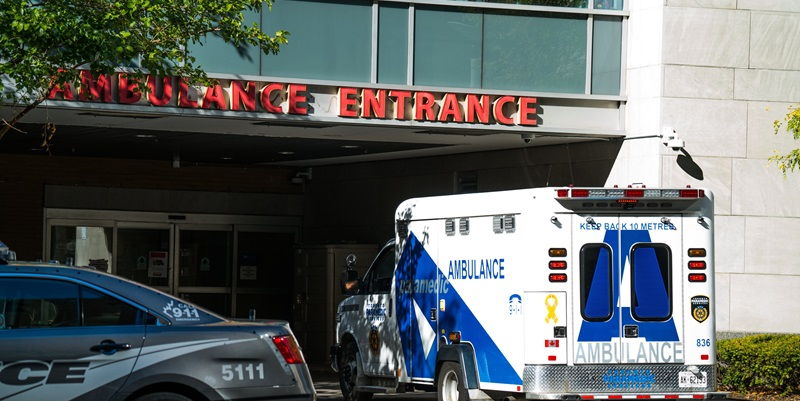A San Diego public hospital is facing a dire situation as it grapples with a cyberattack detected early Thursday. The incident has forced the hospital to divert ambulances and patients to other facilities, adding to the growing list of regional healthcare providers experiencing similar cybersecurity crises. This attack is part of a disturbing trend of ransomware and other cyber incidents targeting the healthcare sector, posing significant risks to patient care and the financial stability of affected entities.
The Escalating Frequency of Cybersecurity Crises in Healthcare Providers
Tri-City Medical Center is the latest victim of a cyberattack, but it is certainly not the first. In recent years, months, and even weeks, regional hospitals have been relentlessly targeted by ransomware and other cyber incidents. These attacks have disrupted operations, compromised patient data, and caused significant disruptions in medical care delivery.
Ransomware and Cyber Incidents: A Growing Threat to Healthcare
Ransomware attacks have become increasingly prevalent in the healthcare sector. A study conducted by the Ponemon Institute, which surveyed over 500 healthcare technology and security leaders, revealed a concerning trend of patient care diversions due to ransomware. These attacks not only compromise the privacy and security of patient data but also have severe implications for patient care and safety.
Implications for Patient Safety Extend Beyond the Attacked Entity
According to Joshua Corman, founder of the advocacy group I Am the Cavalry, hospital cyberattacks have serious and potentially deadly implications for patient safety. The consequences of these attacks extend far beyond the targeted institution. Extended waits for medical care resulting from diverted patients can lead to poor outcomes, especially for individuals with time-sensitive conditions such as strokes.
Extended waits for medical care and patient outcomes
The extended waiting times caused by cyberattacks can have detrimental effects on patient outcomes. Delays in receiving timely medical intervention can significantly worsen the prognosis for patients, particularly those with critical conditions. The sheer disruption caused by cyber incidents can indirectly contribute to poorer health outcomes and put patients’ lives at risk.
Financial Costs and Loss of Income
In addition to the immediate impact on patient care, cyberattacks can have severe financial consequences for healthcare providers. The costs associated with responding to the attack, restoring systems, and implementing cybersecurity measures can be overwhelming. Moreover, the denial of patient care during these incidents can lead to a significant loss of income for the targeted hospitals. This combination of financial strain can cripple smaller regional providers and even force them out of business.
Devastating Consequences for Smaller Regional Healthcare Providers
The impact of cyberattacks on smaller regional healthcare providers cannot be overstated. Unlike large hospital systems or networks, smaller entities often lack the resources and expertise to effectively respond to and recover from these attacks. The financial strain caused by cyber incidents can push them to the brink of collapse, leaving healthcare services in these communities severely compromised.
Uncertainties in the Aftermath of Cyberattacks
The aftermath of a cyberattack can be a time of great uncertainty for affected hospitals. Recovering from such an incident involves not only restoring systems but also rebuilding trust with patients, regulators, and the community. The financial strain and reputational damage caused by these attacks may pose challenges in regaining stability and reassurance post-incident.
The Continued Vulnerability of the Healthcare Sector
Persistent attacks on healthcare sector entities make it clear that any organization operating in this industry can become a target. The valuable nature of patient data, combined with the potential for financial gain through ransom demands, makes healthcare an attractive target for cybercriminals. It is imperative that healthcare providers remain vigilant, invest in robust cybersecurity measures, and prioritize the protection of patient information.
The cyberattack on the San Diego public hospital serves as a stark reminder of the growing threat faced by entities in the healthcare sector. The frequency of ransomware attacks and other cyber incidents has put patient care, safety, and the stability of healthcare providers in jeopardy. It is crucial for healthcare organizations to take proactive measures to safeguard their systems, protect patient data, and ensure the continuity of care in the face of this relentless cyber threat.

